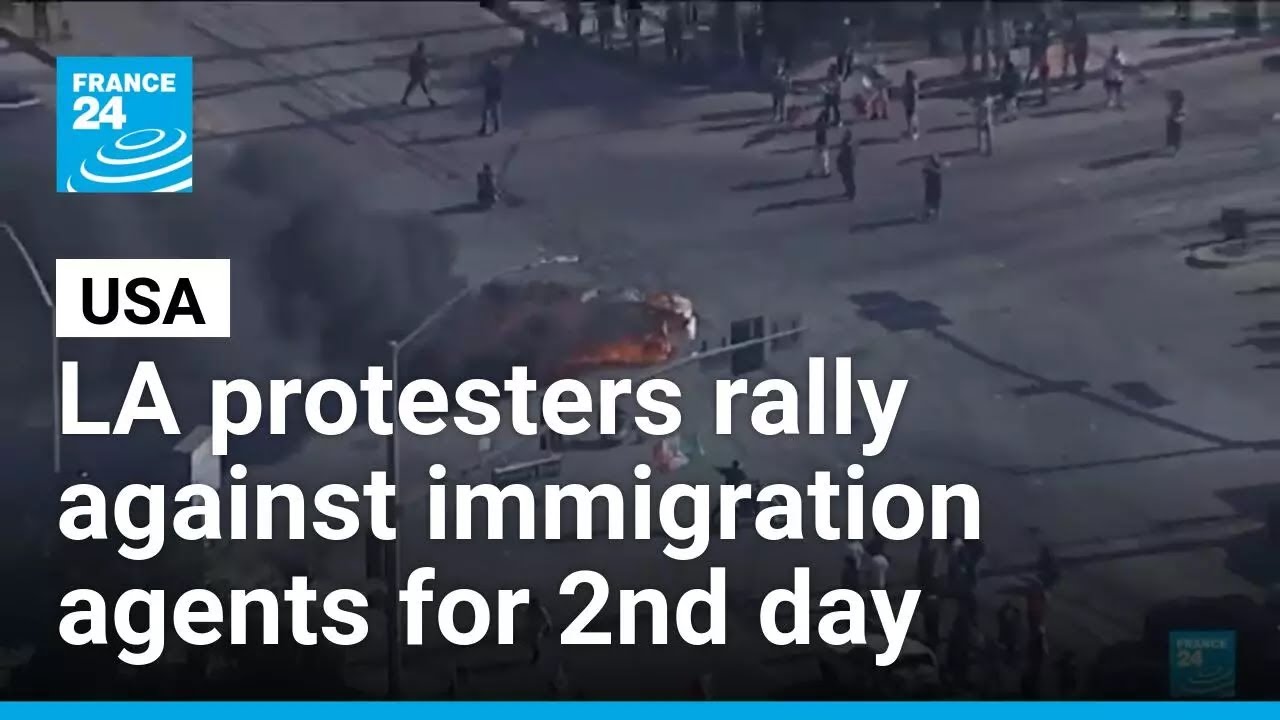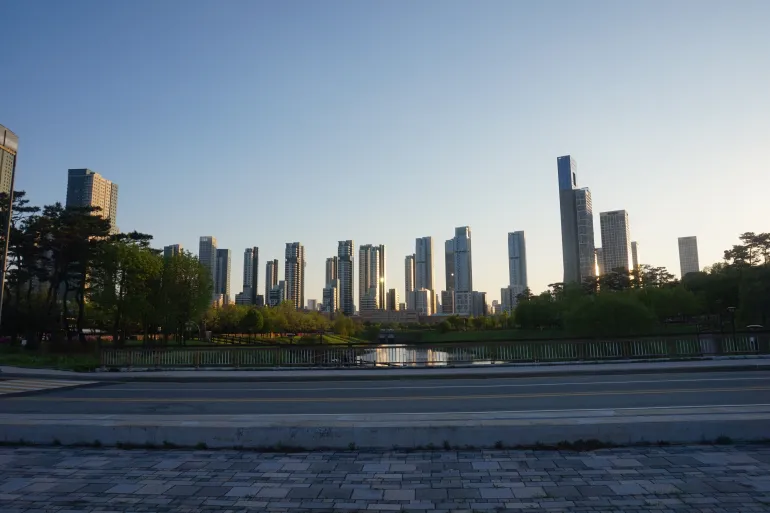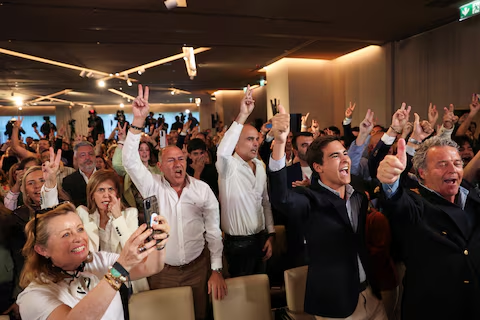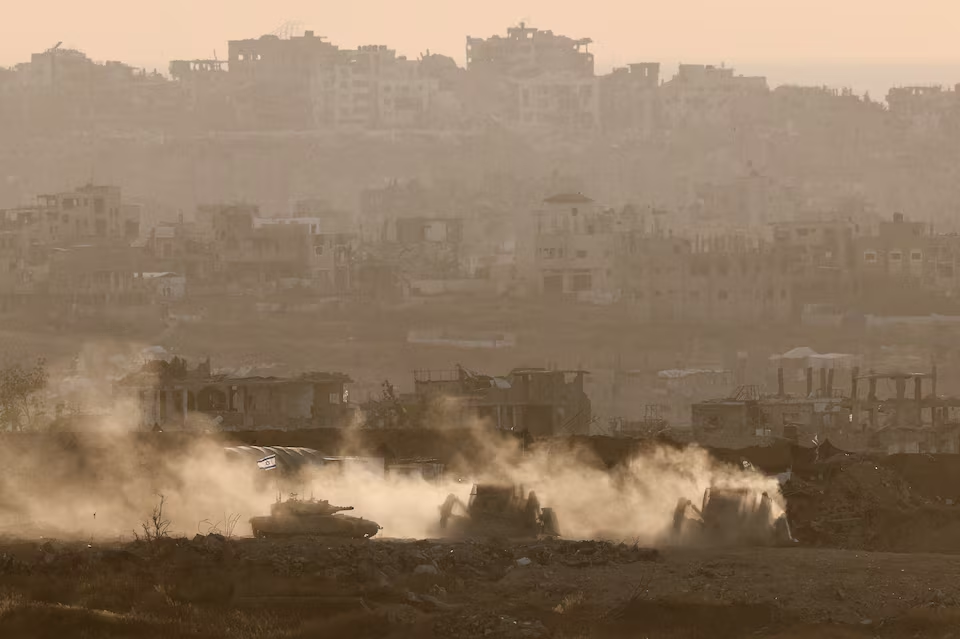Thousands of demonstrators returned to the streets of Los Angeles on Sunday, June 8, for a second consecutive day of protests against recent actions by U.S. immigration enforcement agents. The rallies, sparked by reports of aggressive tactics during recent Immigration and Customs Enforcement (ICE) operations, have drawn significant public attention and reignited debates over immigration policy and civil rights.
According to footage shared by France 24, large crowds gathered across various locations in the city, waving banners, chanting slogans, and calling for an immediate halt to what organizers describe as “militarized immigration raids.” Protesters allege that recent actions by federal agents have disproportionately targeted immigrant neighborhoods, leading to fear, family separations, and in some cases, detentions without clear legal justification.
Demonstrators began assembling late Saturday afternoon and remained active well into Sunday night. Local reports indicate that several roads were blocked during the protests, and at least one vehicle was set ablaze during a confrontation with authorities. Law enforcement responded by increasing their presence in affected areas, with riot police deployed in several districts as tensions rose.
Eyewitnesses described moments of chaos and confusion as protestors clashed with officers attempting to clear streets. Some activists accused the police of using excessive force, although no major injuries have been officially confirmed. Authorities have stated that they are monitoring the situation closely and are committed to maintaining order while respecting the right to peaceful assembly.
The protests follow a series of immigration raids across California, reportedly targeting undocumented residents in neighborhoods such as Boyle Heights, Pacoima, and parts of South Central Los Angeles. Human rights groups claim the operations were carried out with little public notice and in a manner that has traumatized entire communities.
“ICE came through our neighborhood like an occupying army,” said Rosa Delgado, a protest organizer and community advocate. “They detained people without explanation, terrified children, and sent a message that immigrants are not welcome in their own homes. That’s why we’re in the streets today.”
In a statement released Sunday evening, the Department of Homeland Security (DHS) defended the operations, claiming they were lawful, intelligence-driven, and focused on individuals with prior deportation orders or criminal histories. However, critics argue that such explanations are vague and insufficient, particularly when raids disrupt daily life for entire communities and create a chilling effect for both documented and undocumented residents.
Local lawmakers have responded with varying levels of support and concern. Los Angeles Mayor Karen Bass called for restraint and accountability on all sides, stating that “our city must uphold public safety and civil liberties together — not one at the cost of the other.” Several city council members have requested briefings on the scale and purpose of the recent federal actions.
Legal aid organizations reported a surge in calls from concerned residents over the weekend, seeking assistance for detained family members or information on legal protections. Many fear deportations may follow in the coming days, and advocacy groups have mobilized to offer emergency housing, legal advice, and community support.
The protest movement has also gained attention on social media, with the hashtag #StopTheRaids trending nationwide. Videos showing tense standoffs between protesters and police have circulated widely, drawing both condemnation and support depending on political affiliation.
As the rally enters its third day, organizers vow to continue peaceful demonstrations and are planning a larger march later in the week, aimed at drawing national attention and urging Congress to investigate ICE practices in major U.S. cities.
The situation remains fluid, with authorities urging caution and demonstrators demanding change. For many in Los Angeles’ immigrant communities, the protests represent more than political opposition — they are a fight for dignity, safety, and the right to remain.
Source: France 24 English
Protests Intensify in Los Angeles Over Immigration Raids, Rally Enters Second Day



